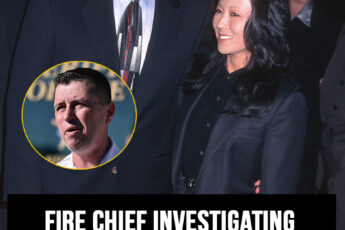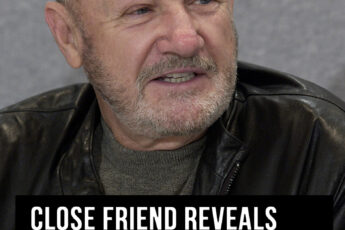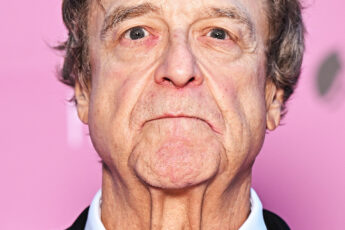Lester Holt Recognized for Compelling Interview Journalism
NBC News anchor Lester Holt has earned a nomination for the 2025 News & Documentary Emmy Award for Outstanding Edited Interview, marking yet another milestone in his celebrated journalism career. The nomination highlights Holt’s interview with civil rights attorney Benjamin Crump, which originally aired on NBC Nightly News and explored the evolving legal and cultural landscape of police accountability in America.
The segment, titled “Justice in America: A Conversation with Ben Crump”, was praised for its emotional depth, editorial sharpness, and commitment to illuminating structural issues often overlooked in mainstream discourse.
A Powerful Conversation at a Critical Time
Filmed just months after a series of high-profile police violence cases gripped the nation, the interview offered an unflinching look at racial injustice, community trauma, and legal reform. Holt’s calm but probing questions provided space for Crump to speak candidly about his experience representing the families of George Floyd, Breonna Taylor, and Tyre Nichols.
The Emmy nomination committee commended Holt for “creating a conversation that went beyond headlines,” highlighting his ability to “balance sensitivity with journalistic rigor.”
Crafting Impact Through Edited Storytelling
Unlike live interviews, the Outstanding Edited Interview category honors the craft of post-production — a combination of thoughtful editing, narrative pacing, and visual storytelling. Holt’s segment stood out for its use of archival footage, synchronized narration, and cinematic framing that helped deliver a powerful emotional experience.
According to NBC News producers, the goal was to bring audiences “not just information, but understanding.” The final version of the piece weaved Crump’s insights with scenes from protests, courtroom verdicts, and family memorials, resulting in an interview that felt both urgent and timeless.
A History of Emmy Recognition
This nomination adds to Lester Holt’s growing list of Emmy accolades. He previously received Emmys for his field reporting during the Haiti earthquake and Hurricane Katrina, as well as for his 2020 town hall with then-presidential candidate Joe Biden.
With this year’s nomination, Holt is now among a small group of broadcast journalists who have been honored across multiple Emmy categories — from investigative journalism to political coverage and now, in-depth interviews.
Peers and Critics Applaud Holt’s Work
Journalists across the industry responded to the nomination with praise. PBS anchor Judy Woodruff noted that Holt “continues to demonstrate what thoughtful interviewing looks like in an era of sound bites,” while The Atlantic called the nominated piece “a masterclass in narrative journalism.”
Colleagues at NBC also expressed their pride. Executive Producer Sam Singal said, “Lester’s approach is always to listen first. That’s what makes his interviews resonate — he asks the questions people at home are afraid to ask, but always with grace and clarity.”
An Emphasis on Human-Centered Reporting
This nomination further reinforces Holt’s role as a journalist who centers human experience. In recent years, his reporting has frequently spotlighted people often excluded from mainstream narratives — from formerly incarcerated individuals and struggling rural families to frontline healthcare workers and undocumented immigrants.
In the Crump interview, Holt emphasized not just the headlines of police violence but also the emotional toll borne by the families. The segment concluded with a quiet moment between the two men, reflecting on hope, resilience, and the long road to justice.
The Significance of the Emmy Nod in 2025
The 2025 News & Documentary Emmy Awards come at a pivotal moment for the journalism industry, which faces increasing polarization, public skepticism, and economic pressure. In that climate, a nomination like Holt’s serves as a reminder of journalism’s power to bridge divides and build empathy.
The National Academy of Television Arts & Sciences (NATAS), which oversees the awards, has placed greater emphasis on public service in recent years. This year’s nominees reflect that focus — with an increase in stories on climate change, social justice, and government transparency.
Behind the Scenes of the Interview
According to the production team, the interview took over a month to prepare. The research phase involved combing through hundreds of legal documents, court rulings, and Crump’s past cases. Editors spent weeks refining the structure to balance factual accuracy with emotional resonance.
Holt worked closely with producers to craft questions that would not only inform but also provoke reflection. “The goal was never just to get answers,” Holt explained in a behind-the-scenes NBC segment. “It was to create a moment that people would remember and talk about.”
A Legacy of Trust and Thoughtful Dialogue
Lester Holt’s ability to earn trust from his interview subjects — and his audience — continues to be a defining trait of his work. From heads of state to grieving families, Holt has interviewed people at their most vulnerable and their most powerful, always with empathy and professionalism.
In his career spanning over four decades, Holt has shown that impactful interviews are not about confrontation, but connection. This latest Emmy nod serves as recognition of that philosophy — and of the quality journalism that remains vital to democratic society.
Looking Ahead to the Emmy Awards Ceremony
The winners of the 2025 News & Documentary Emmy Awards will be announced at a gala ceremony in New York City this September. Holt is set to attend, alongside nominees from PBS, CNN, ProPublica, and The New York Times. The event will be broadcast live on the NATAS website and select streaming platforms.
While Holt remains humble about the nomination, those close to him see it as a deserved spotlight on a journalist who has quietly shaped the national conversation for decades.
In a recent NBC staff memo, Holt wrote, “This recognition is not just about me. It’s about the power of good storytelling, and the belief that when we listen — really listen — we can make a difference.”






